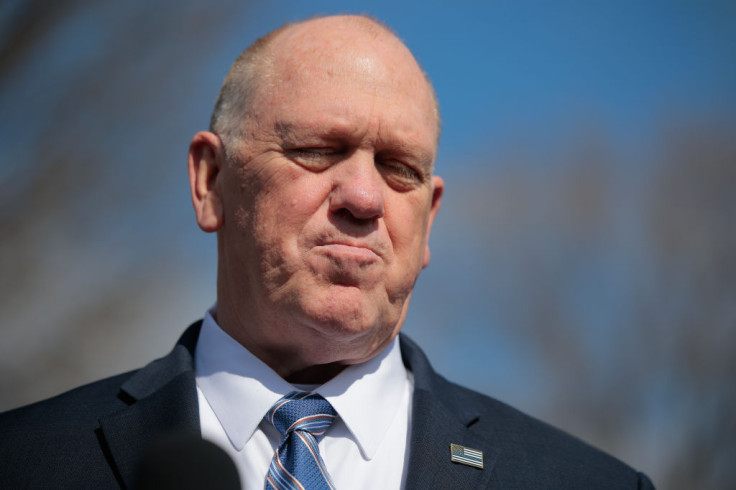
The United States will triple its immigration enforcement operations in workplaces as part of a broader crackdown on undocumented immigrants, border czar Tom Homan announced. The move is part of a wider strategy that includes new executive orders and increased targeting of so-called sanctuary cities.
Speaking at the White House, Homan said workplace enforcement actions had already tripled in the past year and "will triple again." He attributed the increase in part to jurisdictions that limit local law enforcement cooperation with federal immigration authorities.
"If we can't arrest them in the community, we'll arrest them at their workplace," Homan said.
The announcement comes as the Trump administration prepares to sign two executive orders on the matter. According to White House spokesperson Karoline Leavitt, one order will enhance federal law enforcement's ability to apprehend immigrants, particularly those with criminal records, while the second one directs the Departments of Justice and Homeland Security to publish a list of jurisdictions the administration deems obstructive to federal immigration law—commonly referred to as sanctuary cities.
ICE and Customs and Border Protection have recently conducted enforcement actions that extend beyond formal workplaces. In California's Central Valley, over 200 undocumented farmworkers were detained in January while commuting to work. Last week, nearly 20 day laborers were arrested in Los Angeles County in a parking lot outside a Home Depot store. The administration argues that such locations often reveal victims of human trafficking and forced labor.
Despite this aggressive stance, President Trump recently suggested that deportation priorities might be eased for workers in industries like agriculture and hospitality, which are heavily dependent on immigrant labor. "We have to take care of our farmers, hotels, and other sectors that need people," Trump said during a recent Cabinet meeting.
Separately, Homan addressed the removal of three U.S. citizen children to Honduras alongside their undocumented mothers. One of the children, a four-year-old with Stage 4 cancer, was deported without medication, according to advocacy groups. Homan claimed the decision was made by the parents, not the government. "They weren't deported. We don't deport U.S. citizens. Their parents made that decision," he said.
A federal judge has since raised concerns about due process in at least one of the deportation cases. A hearing is scheduled for May 19 to determine whether proper legal procedures were followed.
© 2025 Latin Times. All rights reserved. Do not reproduce without permission.






